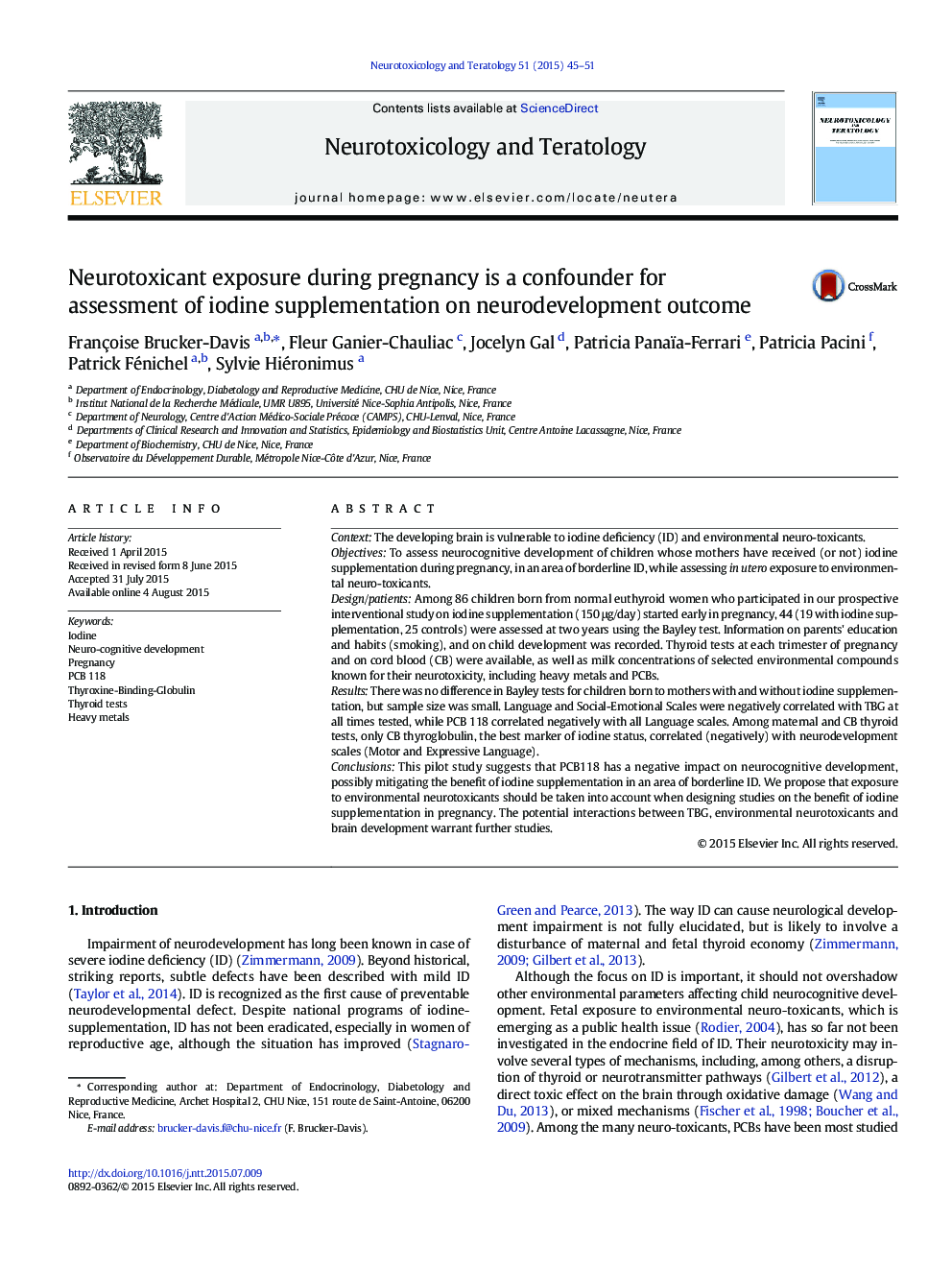| کد مقاله | کد نشریه | سال انتشار | مقاله انگلیسی | نسخه تمام متن |
|---|---|---|---|---|
| 2590891 | 1562084 | 2015 | 7 صفحه PDF | دانلود رایگان |
• Cord blood thyroglobulin, marker of iodine status, correlates with neurodevelopment.
• Maternal TBG correlates negatively with language and socio emotional scales.
• Prenatal exposure to PCB118 may alter language development at children aged 2.
• PCB118 exposure may mitigate the benefit of iodine supplementation in pregnancy.
• Neurotoxicant exposure should be considered for studies on iodine intake in pregnancy.
ContextThe developing brain is vulnerable to iodine deficiency (ID) and environmental neuro-toxicants.ObjectivesTo assess neurocognitive development of children whose mothers have received (or not) iodine supplementation during pregnancy, in an area of borderline ID, while assessing in utero exposure to environmental neuro-toxicants.Design/patientsAmong 86 children born from normal euthyroid women who participated in our prospective interventional study on iodine supplementation (150 μg/day) started early in pregnancy, 44 (19 with iodine supplementation, 25 controls) were assessed at two years using the Bayley test. Information on parents' education and habits (smoking), and on child development was recorded. Thyroid tests at each trimester of pregnancy and on cord blood (CB) were available, as well as milk concentrations of selected environmental compounds known for their neurotoxicity, including heavy metals and PCBs.ResultsThere was no difference in Bayley tests for children born to mothers with and without iodine supplementation, but sample size was small. Language and Social-Emotional Scales were negatively correlated with TBG at all times tested, while PCB 118 correlated negatively with all Language scales. Among maternal and CB thyroid tests, only CB thyroglobulin, the best marker of iodine status, correlated (negatively) with neurodevelopment scales (Motor and Expressive Language).ConclusionsThis pilot study suggests that PCB118 has a negative impact on neurocognitive development, possibly mitigating the benefit of iodine supplementation in an area of borderline ID. We propose that exposure to environmental neurotoxicants should be taken into account when designing studies on the benefit of iodine supplementation in pregnancy. The potential interactions between TBG, environmental neurotoxicants and brain development warrant further studies.
Journal: Neurotoxicology and Teratology - Volume 51, September–October 2015, Pages 45–51
